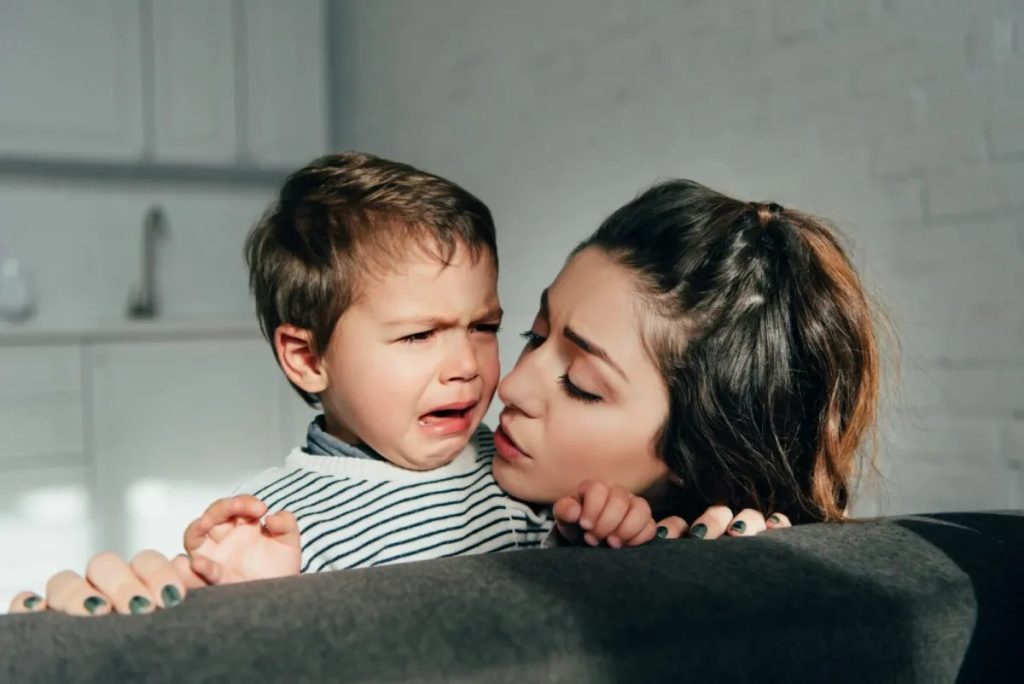
Permissive parenting can be compared to a big hug that keeps giving—until you end up with a kid who is the boss, and the rest of the world is not quite as willing to do their bidding. Have you ever wondered why some kids seem to expect to be treated like VIPs wherever they go, or why some parents are always in a negotiating mode with a toddler-sized tyrant? If so, then you’re not the only one. Let’s untangle the most revealing signs of permissive parenting, from counting 5 to the core of the issue, and what you can do to get things moving again.

5. The “Better Than” Attitude—How Special Treatment Creates Superiority
Since kids hear every day how special they are, how pretty, smart, or more deserving they are than everybody else, it is simple for them to feel superior. It is “If the inflated or grandiose view of the child is not moderated by limit setting and frustration, the child holds on to the perception of themselves as superior to others and expects special dispensation in the form of extravagant caring and indulgences.” This “better than” mentality isn’t only frustrating to others—it renders it practically impossible for children to have healthy, mutual relationships. The world soon becomes a frustrating place when it no longer turns around them.

4. The “I Want It Now” Syndrome—Low Frustration Tolerance and Meltdowns
Permissive parents tend to give in to prevent tantrums, but all they do is teach children that persistence (or noise) works. As explained by A Sensitive Mind, “Permissive parenting can intensify frustration because permissive parents feel guilty about allowing the child to feel disappointed.” Kids who are never required to wait or work for a desired item have difficulty accepting frustration, resulting in angry outbursts or withdrawal if things do not happen as they want. This “I want it now” attitude is a quick route to emotional immaturity and inability to deal with life’s inevitable disappointments.

3. The Vanishing Boundaries—When Kids Rule the Roost
Permissive parents tend to erase boundaries between parent and friend. Rules do not exist, or are inconsistent, and children are permitted to have a say in big decisions way beyond what’s age-appropriate. As outlined by Clever Bee Academy, “Permissive parents view themselves as more of a friend than a parent, thus, are not forced to have mature behavior.” The result? Kids who don’t recognize boundaries at home are unlikely to respect them elsewhere, leading to power struggles with teachers, coaches, and other authority figures.

2. Emotional Immaturity—Why Indulgence Stunts Growth
Those children who are protected from disappointment and never have to deal with their feelings tend to seem emotionally immature relative to their counterparts. Dr. Mary Ann Little points out that “as the pampered child spends more time outdoors, real-life frustrations cannot be escaped and are badly dealt with.” The “easy kid” at home can soon fall apart in public, with tantrums, tears, or aggression emerging when they don’t get their way. Emotional resilience is created by overcoming and coping with challenges—not by having all the hurdles taken away.

1. Entitlement in Action—Timeless Phrases and Behaviors
Outside the home, these tendencies tend to be regarded as rude, selfish, or even downright draining. 3. Weak Self-Discipline and Decision-Making Permissive parenting is associated with weak self-discipline and weak decision-making.

Children who are not required to take responsibility for their actions and held accountable do not learn to control their impulses and deliberate choices.

As elaborated by Clever Bee Academy, “Studies have discovered negative consequences for a child raised by permissive parents. Because permissive parents let their children do whatever they please, they don’t get used to rules and discipline and don’t learn grit and perseverance.” This can express itself in the inability to manage time, resist temptation, or keep promises—skills that are necessary for success in school, the workplace, and personal relationships. 2.

The Ripple Effect—Social Fallout and Relationship Struggles. The effects of permissive parenting don’t remain at home. Teachers first notice warning signs, including children who are unable to calm themselves down, won’t take responsibility, or demand special favors in the classroom.

As they mature, entitlement and poor coping mechanisms can spill over into troubled work lives and tense relationships with adults—even their parents. 1. Breaking the Cycle—How to Transition from Permissive to Balanced Parenting. The good news? Permissive parents can switch gears. Experts all agree: The healthiest way is to mix warmth and empathy with definite, consistent boundaries.

As Dr. Mary Ann Little puts it, “the right amount of warmth along with appropriate limits will help parents. steer their child back onto a good course of development.” This means saying no when necessary, requiring children to contribute to the household, and letting them experience age-appropriate disappointment and struggle. It’s not about being harsh—it’s about preparing kids for a world that won’t always say yes. Permissive parenting can begin with the best of intentions, but without limits, it can leave kids unprepared for the rough and tumble of life. Paying attention to these signs is the beginning of raising tough, respectful, and well-adjusted children—no red carpet necessary.


